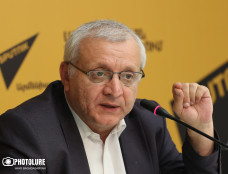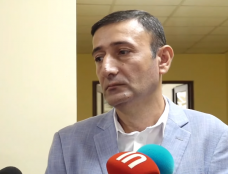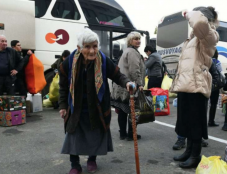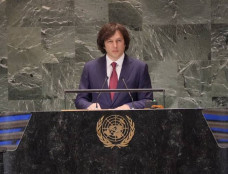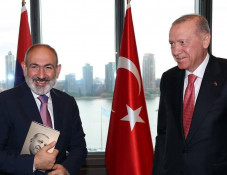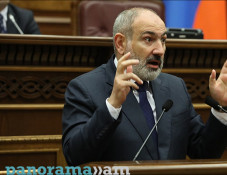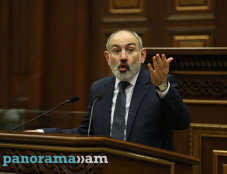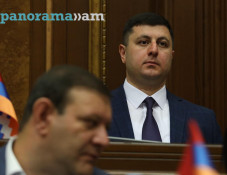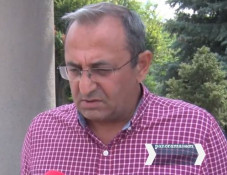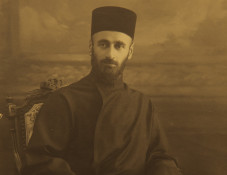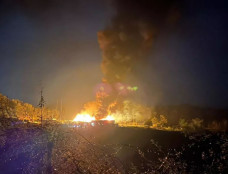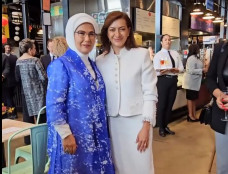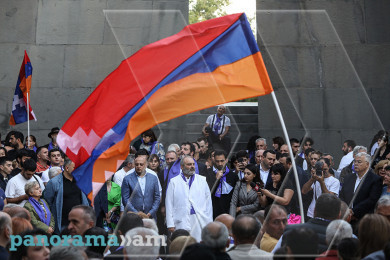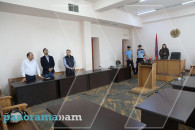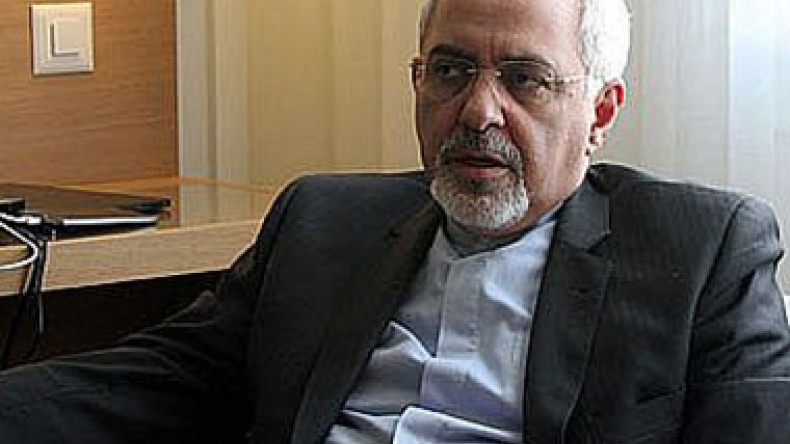
‘I tolerated domestic pressures so that negotiations would succeed’
Iranian Diplomacy’s exclusive interview with Dr. Mohammad Javad Zarif, the Islamic Republic of Iran’s Foreign Minister, in Geneva
- What are the differences between this round of negotiations and the previous one which was held three weeks ago?
- In yesterday’s meeting, we discussed the details. This is while the framework was mostly discussed in the previous meeting. We considered three issues in that framework which included the first step, a defined objective and the last step. The Iranian party proposed the points and issues which should be considered in each of these phases but the details were not discussed. More details were proposed in last week’s expert meeting in Vienna. In yesterday’s and today’s meetings, we talked about how to relate these details. Yesterday, in the official and general negotiations between the delegations and also in the negotiations which my colleagues, Mr. Ravanchi and Mr. Araqchi, had with the heads of the P5+1 delegations, we discussed the details of how to put the issues together and we reached a relatively good understanding. That is why it was necessary that the P5+1 members find an opportunity to discuss these matters amongst themselves so that we could start the writing process today, which might happen shortly with the presence of Ms. Ashton here.
- What caused Iran to prefer to concentrate on bilateral meetings this time?
- A major part of negotiations with the P5+1 always belonged to bilateral meetings, even before I was given this responsibility, and this is not unprecedented. Following the first round of negotiations, we thought that in order to discuss the details of the issue, it was necessary for the parties to hold bilateral talks. Yesterday, Ms. Ashton proposed that we first hold these bilateral talks. We accepted because this was an opportunity to express and study the viewpoints in a more unofficial atmosphere. The main objective behind these meetings was to prevent the parties from taking positions which would create obstacles in the process of negotiations. That is why we agreed to not negotiate very openly. The fact is that I tolerated the pressures inside the country and did not go into details because I believe that this is very essential and necessary for the success of negotiations. Furthermore, one of the main barriers in reaching an agreement has always been this assumption that mutual respect does not exist. This means that there is this assumption that one side intends to impose its viewpoints on the other. Therefore, we insisted yesterday that an agreement should be reached on the basis of a common viewpoint and through writing a joint text, not like before when one side prepared a text and presented it to the other side. When I presented my proposal, it was a collection of ideas not within a rigid framework wherein only the must-dos and must-not-dos are mentioned. The goal was to advance negotiations on a calm path which would show that none of the parties seeks to impose its ideas on the other side. I believe that one of the methods was yesterday’s bilateral negotiations so that these talks would continue in a more unofficial atmosphere and then we could reach the writing process.
- Mr. Minister, ten years ago, when Iran’s nuclear negotiations with Europe began, the other side included three countries and today their number has grown. Don’t you think that the increased number of countries has somehow made reaching an understanding more difficult for Iran?
- When Dr. Rohani and we began negotiations in those years, the conditions were different. Iran’s dossier was not in the Security Council and the other parties were the Europeans. There were advantages and disadvantages in this strategy. The advantage was that we were negotiating with a smaller group but the disadvantage was that the shadow of the US was always present in the room. When we convened the Paris negotiations in March 23, 2005, I remember that, during the 7 hours that I was negotiating with the three countries, John Bolton, who was then the Deputy Secretary of State and in charge of disarmament in the cabinet, called the French party seven times to make sure that no agreement was reached. Of course, it must be pointed out that the other party has not benefited from these sanctions and the important point is that they understand that their approach and sending the nuclear dossier to the Security Council and imposing sanctions have all led to an increase in the number of centrifuges in Iran from 300 at that time to 18000 or 19000 centrifuges now. It cannot be denied that sanctions have affected people’s lives. If the US’ objective was to exert pressure on the Iranian people and instill hatred in them, they have achieved this goal well, but they have not gained any political objective from this approach. The fact is that in general today’s conditions are very different from the conditions of that time and no one can return these conditions to the past. One year after March 23, 2005 when we offered our proposal in Paris, all of the western countries expressed their regret in the political circles and wished that they had accepted that proposal. Right now there is an opportunity for them to accept the proposals on the table and prevent useless confrontation. In this agreement, both our interests and the interests of the other side have been considered.
- On this basis, do you not believe that the negotiation is actually between Iran and the US for it is Washington which creates obstacles in the path of negotiations more than the others?
- It seems that at the present time we have to negotiate with all of the P5+1 countries because each one of them has a different viewpoint. For example, France has its own particular opinion. Besides participating in the UNESCO conference, my trip to Paris had the objective of meeting with the French officials and removing some of their concerns. Despite the fact that the French officials were always involved in negotiations in the past but their positions have become very harsh during recent years. Unfortunately the type of relations between our countries during the past several years has led them to take such harsh positions. Certainly the US is a major and perhaps the most important state player in the international scene and it plays a significant role. But its significance does not eliminate the necessity of our talks with the other members and cannot solve the problem by itself.
- Important developments have occurred during the past several hours. You cancelled your trip to Italy. John Kerry, your American counterpart, is now in the region and is coming to Geneva. Is a new development taking place in the negotiations? Will there be a bilateral meeting between you and John Kerry?
- I cancelled my trip to Italy because Ms. Ashton asked me to remain present in the Geneva negotiations and I also felt that the negotiations were so serious that I could not leave Geneva for even a few hours. My guess was right because my presence in Geneva was necessary during the entire day. The fact that Mr. Kerry is coming to Geneva from the region shows the importance that the US Secretary of State considers for these negotiations and perhaps they feel that we have probably reached the final stage and it is necessary for them to be present in Geneva to solve the problems which might occur at this stage. On the other hand, other ministers are also in the region and they will come to Geneva if they feel it is necessary. We believed from the beginning that, for the success of these negotiations, they should be held at the ministerial level. Perhaps other ministers have also reached the conclusion that a political decision needs to be made.
- In Tehran, Mr. Araqchi reiterated that the foreign ministers have stated that they would hold ministerial level negotiations only when negotiations have reached the final stage and they are ready to reach a final agreement. Can Mr. Kerry’s presence in Geneva be considered as a sign of reaching the point of signing an agreement?
- There is certainly the possibility of reaching an agreement. But whether this possibility will reach certainty depends on the conditions that exist today and the seriousness of the negotiating parties. We hope that we would be able to make progress today. As I have said before, I am hopeful but even if we do not reach an agreement that would not be a catastrophe.
- In yesterday’s meeting, did you talk specifically about the fact that Iran prioritizes the lifting of sanctions?
- We believe that all of the unilateral sanctions are illegal and must be lifted.
- Are sanctions the priority in the step-by-step program?
- Part of these sanctions are on the table and as you know sanctions experts from all of the P5+1 countries were present in all of the three meetings, thus, this issue is one of the major points of discussion.
- Considering the obstacles which exist in the US against the immediate lifting of sanctions, is it possible that Tehran would demand the lifting of European sanctions in the first step?
- We discuss the US, Security Council, and EU sanctions at the negotiating table. We must advance stage by stage, but in the first stage, all parties must take measures.
- It is repeatedly discussed in western media that both the US President, due to the pressures exerted by the Congress to adopt more sanctions, and the government of Iran, because of severe opposition inside the country against the negotiations, have limited time for the success of negotiations. How important is the component of time in these negotiations?
- There are groups inside the US whose interests are in the continuation of tensions and they would certainly use the component of time to interrupt this trend. There are also concerns inside Iran with regard to the lack of seriousness of the US and the West in these negotiations. This concern will be intensified with the passage of time, asking why there are still obstacles on this path when there is the possibility of reaching a solution. Therefore, the passage of time is not to the benefit of negotiations but this does not mean that we must act hastily in negotiations or ignore the agreements which we think can be achieved. Negotiation is different from stating positions and this is an issue which must be comprehended. In negotiation, the viewpoints of all parties must be considered. It is only in negotiations of surrender that the viewpoints of one side are only considered. The lengthening of negotiations would prepare the ground for the judgment of those who assume that negotiation is the same as stating positions, which has been done in the past. What happens in negotiations is that the 6 countries plus Iran state their positions, and these countries have not necessarily had good relations with us.
- What is the desired time limit for you to reduce the economic pressures caused by the sanctions on Iran?
- The effects of these negotiations on the economic pressures on the people will not show themselves in the short run. Right now, we are experiencing the incorrect economic policies of the past and these effects will not be seen immediately. Some of the conditions that we are facing today are the result of the policies which have been enforced during recent years and have created problems for the government and the people. Any agreement that would be reached here in Geneva would not be able to end the economic problems overnight. What we must be assured of at this stage is that new sanctions will not be imposed and new bad economic conditions would not create more problems for the people. Perhaps it would be interesting for you to know that despite the efforts made by the American hardliners, Netanyahu’s last visit to the US was, in fact, the first trip during which he did not leave the US after registering another new sanction against Iran. This is a huge success for those who are against pressure, war, and sanctions.
Newsfeed
Videos





